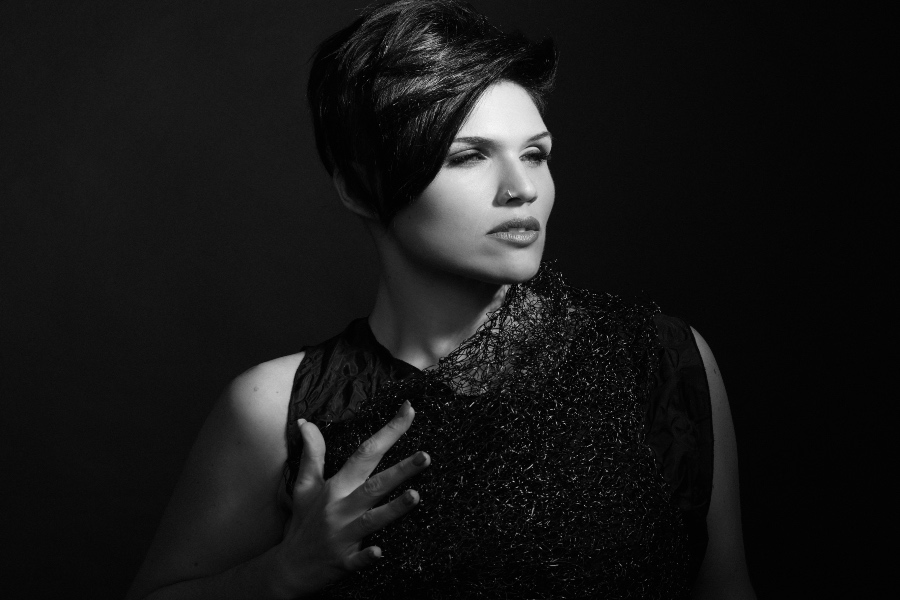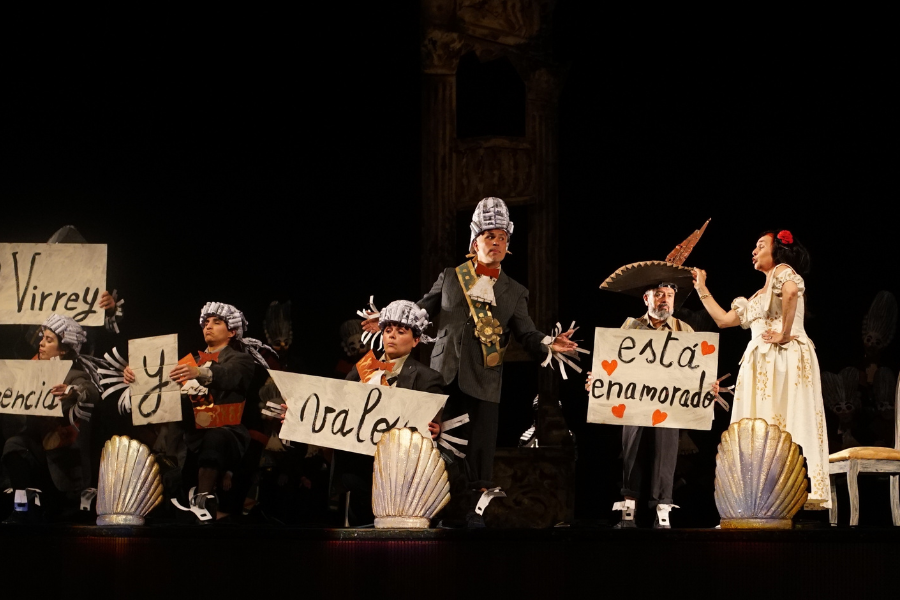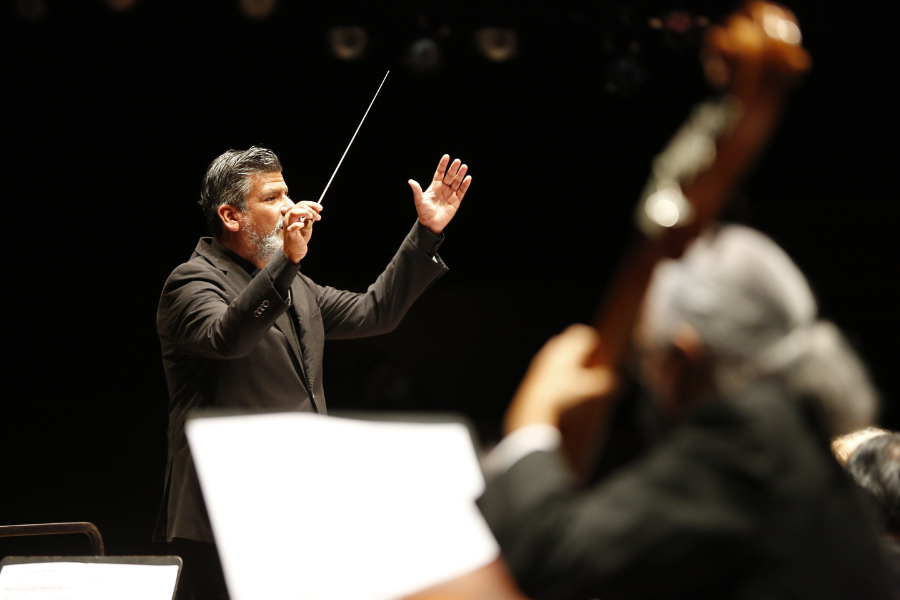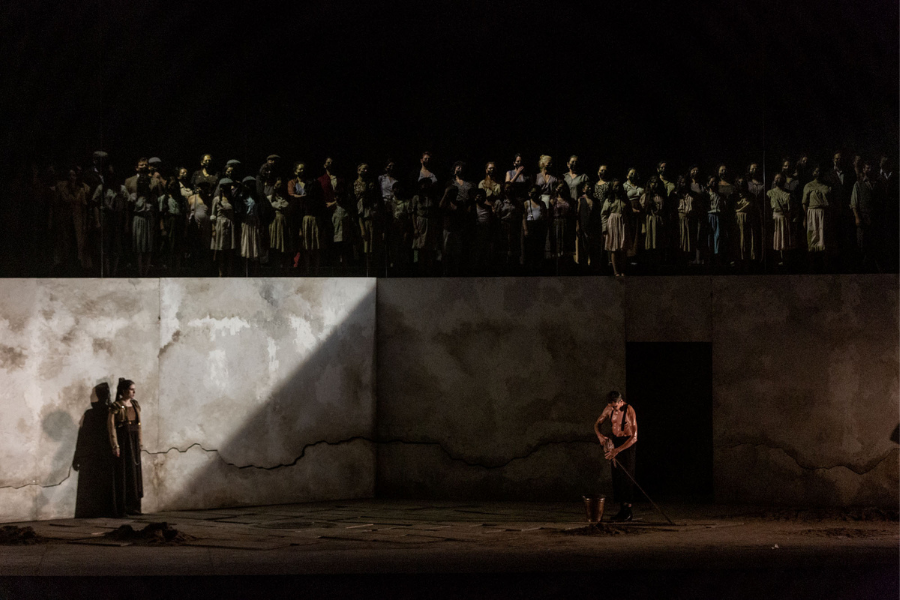Gran Teatro Nacional presenta edición digital del Festival Fado 2020 con grandes estrellas del popular ritmo portugués

Sara Correia, Fábia Rebordão y Cuca Roseta ofrecerán en streaming un concierto de homenaje por el centenario de Amália Rodrigues, máxima exponente del Fado, este martes 6 de octubre, a las 7:00 de la noche.
En el marco del Festival Fado 2020, el Gran Teatro Nacional del Ministerio de Cultura de Perú, en coordinación con “Everything is New” y “Alto e Bom Som” de Portugal, presentarán este martes 6 de octubre, a las 7:00 de la noche, a las reconocidas cantantes portuguesas Sara Correia, Fábia Rebordão y Cuca Roseta rindiendo un homenaje musical vía streaming a Amália Rodrigues, desde su casa-museo y como parte de las celebraciones por los 100 años del natalicio de la legendaria fadista. El concierto se transmitirá a todo nuestro país y el mundo a través de la página de Facebook del Gran Teatro Nacional.
El éxito alcanzado con las presentaciones realizadas en Lima con Mariza (2017), Katia Guerreiro (2018) y Carminho (2019), motivó a los organizadores del festival portugués a continuar este año con el GTN de manera digital, pese a las restricciones y limitaciones físicas generadas por la emergencia sanitaria mundial. Para mantener vigentes el sentimiento y la trascendencia del Fado se reunió para esta décima edición a tres de las figuras más importantes de la música portuguesa: Sara Correia, Fábia Rebordão y Cuca Roseta.
Las personas que vean sobre el escenario a Sara Correia sentirán de inmediato el espíritu de una música popular que impulsa emociones porque ella en todo momento respira Fado. Su performance propone lo mejor de Amália Rodrigues, que vuelva a cantar y encantar, regresar a la esencia de lo que hizo desde joven la recordada artista.
Por su parte, Fábia Rebordão es considerada, de manera unánime, una de las voces de referencia del nuevo Fado. La prima de Amália Rodrigues empezó a cantar de forma habitual en casas de fado y actualmente es considerada como la única intérprete que posee “la misma amargura en la voz que identificó siempre a Amália”.
Cuca Roseta es otra de las aclamadas figuras del Fado. Su calidad vocal ha conquistado importantes escenarios del mundo y, tras cinco producciones discográficas en las que destacan las firmas de Gustavo Santaolalla y Nelson Motta, la cantante portuguesa presenta ahora un álbum y espectáculo íntegramente dedicado a Amália Rodrigues.
La actuación de Correia, Rebordão y Roseta será mediada por una conferencia corta a cargo del profesor Rui Vieira Nery, quien expondrá aspectos de la vida artística de Amália Rodrigues, figura central de la historia del Fado, género musical portugués que la UNESCO incluyó en 2011 dentro de su Lista Representativa del Patrimonio Cultural Inmaterial de la Humanidad.
Amália Rodrigues nació en Lisboa en el año de 1920, en el seno de una familia pobre de inmigrantes de la Beira Baixa, en el interior de Portugal. Empezó su carrera en las casas de fado de la capital y luego dio un salto al teatro musical y el cine, afirmándose pronto como una referencia absoluta del arte escénico.
Para cerrar el Fado 2020 en nuestro país y el mundo, el público peruano podrá admirar después del concierto “El arte de Amália», un documental de Bruno de Almeida basado en la serie «Amália, extraña forma de vida», que Radio Televisión Portuguesa estrenó hace algunos años y en la que pasan revista de la vida y trayectoria de la diva.
El Festival Fado ha logrado consolidarse en Perú desarrollando una interesante gama de actividades artísticas, proyecciones cinematográficas, conferencias y exposiciones que muestran la riqueza cultural de Portugal. Su historia empieza en Lisboa entre 1820 y 1830 con una permanente interacción entre la música y la poesía. En su proceso de formación convergen bailes afro-brasileños, cantos populares de marineros, modinhas sentimentales de salón, melodías y danzas regionales practicadas por migrantes.
Cuando ingresa al teatro musical durante la segunda mitad del siglo XIX, el contacto con el couplet de revista se traduce en el surgimiento e institucionalización del Fado como canción con refranes y coplas. En el transcurso de las dos Guerras Mundiales recibe influencias del arte andaluz, las melodías brasileñas, el tango argentino, acordes del medio oriente, jazz y folk, ampliando su espectro a nivel mundial.
Sin embargo, esta evolución del Fado coexistió siempre con un fuerte sentido de tradición, transmitiendo un repertorio nuclear con identidad y marcando sobre el escenario una forma única de cantar y sentir.





